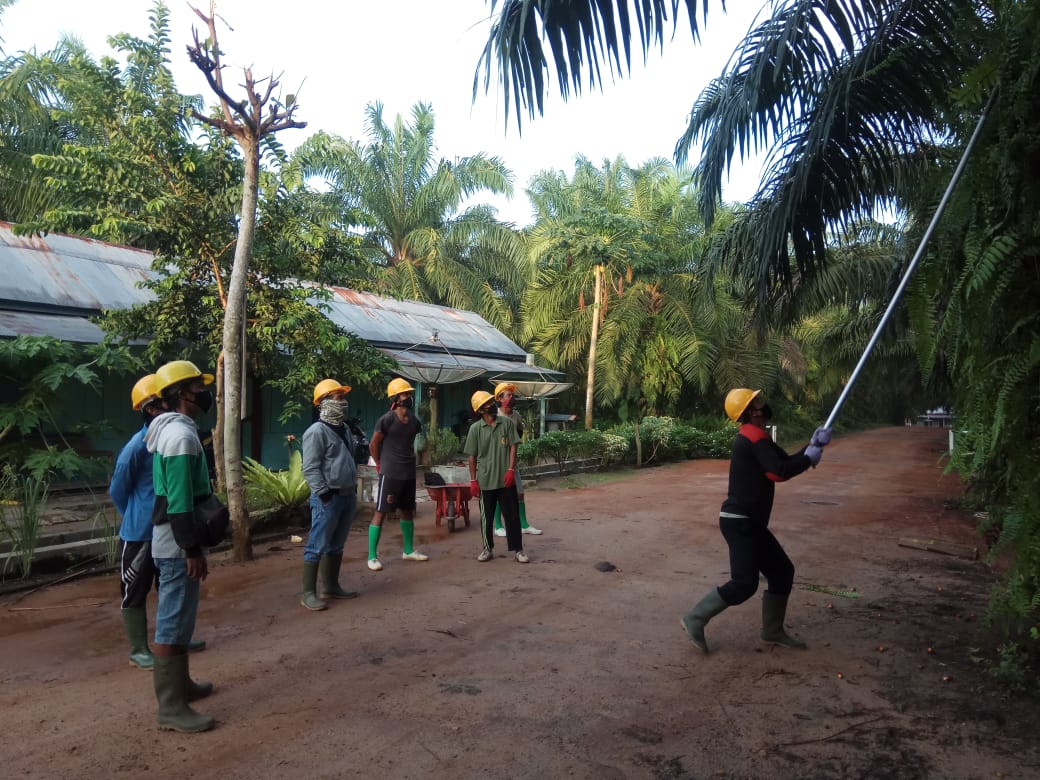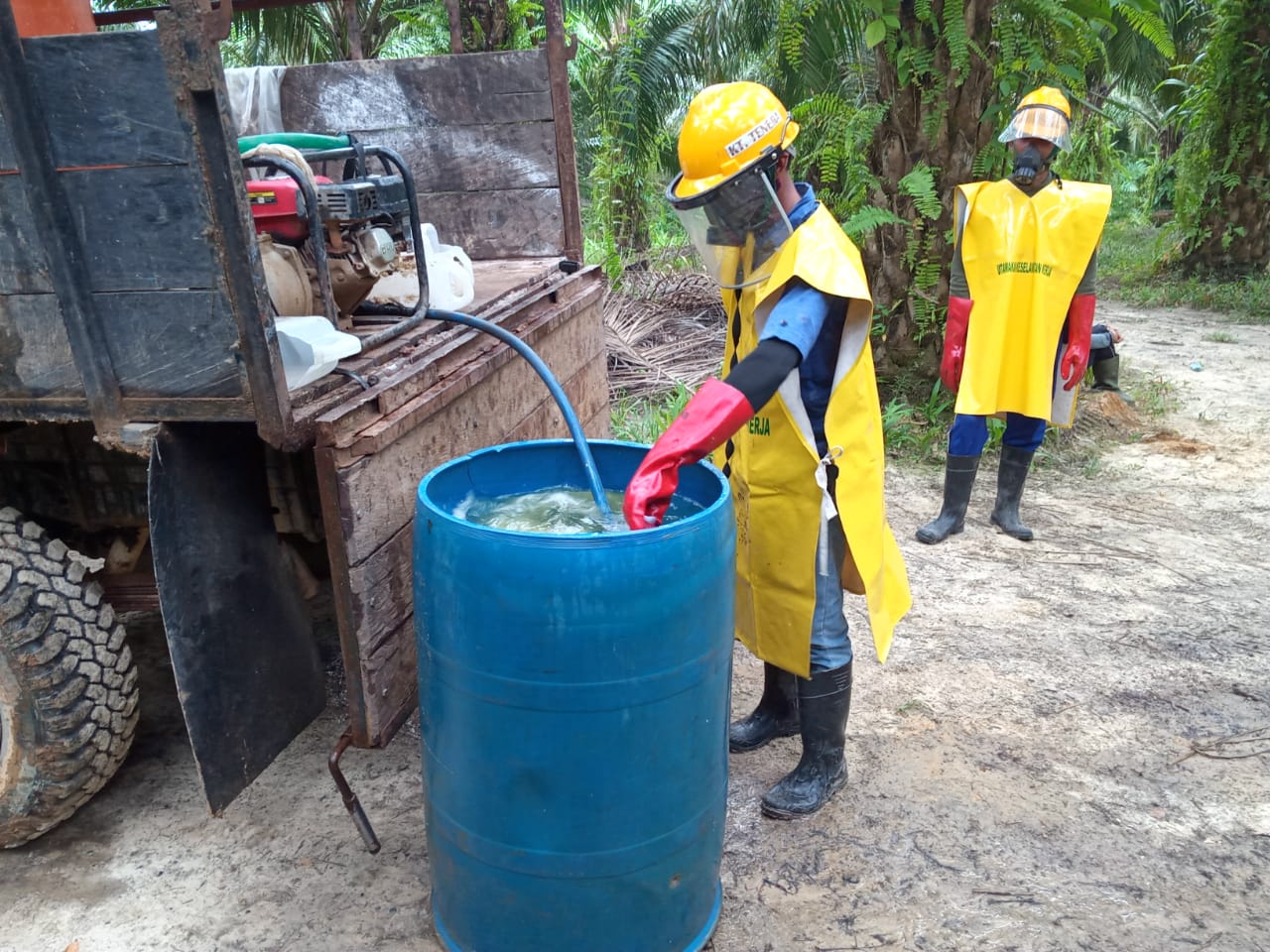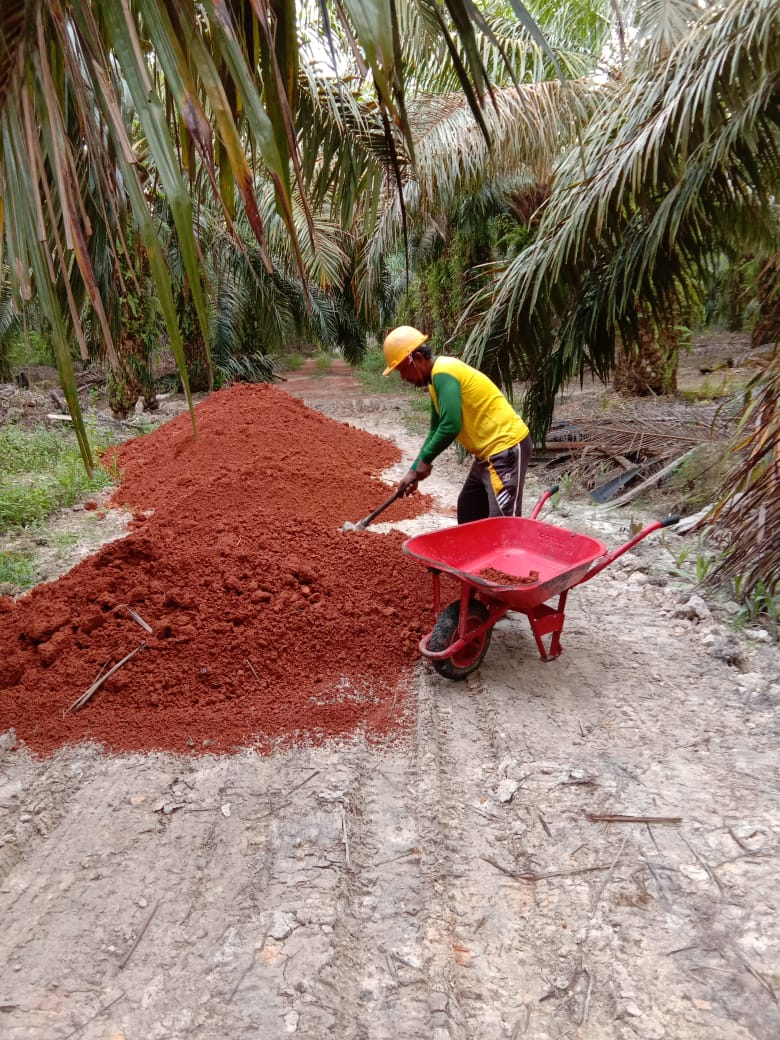
About the group
Number of smallholders: 35 (19 Men, 16 Women)
Total Land Area: 223.92 Ha
Status: Certified
Preserved Area: 1.05 Ha
Group location: Hampalit Village, Katingan Hilir Sub-District, Katingan District, Central Kalimantan Province, Indonesia
Country: Indonesia
On-going Facilitator:
SUSTAINABILITY JOURNEY STORY
From oil palm to watermelons: how sustainability practices reap rewards
Kelompok Tani Tenera, a smallholder group in Central Kalimantan, has successfully integrated sustainable practices into the watermelon farming in their village, after gaining RSPO certification for their oil palm plantations.
Group Manager Sugiyarno said that most members of Tenera, located in the Village of Hampalit in Katingan Hilir Sub District, Katingan District, are independent oil palm farmers; and some are also watermelon growers. “As a farmer group, Tenera has a unit dealing with watermelon farming, another prospective activity in the area. As one of the popular fruit types in Indonesia, demand for this juicy and sweet fruit is stable.”
He added that farming of the tropical fruit has become a promising activity for farmers in addition to planting oil palm, especially for newcomers who just resettled in the village. “There’s always been a strong demand for watermelon, because the fruits are also supplied to several neighbouring sub-districts and towns including Sampit and Palangkaraya, the capital of Central Kalimantan”, he said. “Watermelon has a lot of health benefits that result in its steady demand throughout the year and the farming of it can provide employment. To help farmers attain success, they have to apply the best farming methods.”
Since Tenera obtained RSPO certification three years ago, smallholders in the group have gained a much better understanding of sustainable practices, leading to improved palm oil production, as well as a transfer of knowledge into the village’s watermelon farming. “The basics of best agricultural practices can actually be applied in various fields. With the knowledge of sustainable practices in palm oil, we can also improve our watermelon farming, so the productivity and quality of the crops can be further increased.”
According to Sugiyarno, watermelon farming covers some eight hectares of land which is primarily situated side-by-side with the oil palm plantations, and not included in the areas that are RSPO certified.
“The Tenera Farmer Group,” he reiterated, “provides several plots of land to the new residents in the village, encouraging them to grow watermelons. They can use the land for free, without any leasing fee for a certain period. This is a scheme set up to help and support those who do not yet own any land, while also strengthening the watermelon farming community.”
“We were able to support the watermelon project much better after Tenera received a certificate of sustainable palm oil from the RSPO in July 2018, which began with a series of training and mentoring programs for approximately a year,” he recalled.
Sugiyarno said members of the Group were thankful for the success. “We are very grateful and happy. This certificate is evidence that we have complied with the principles of sustainability, and will ensure that the groups’ oil palm cultivation business will be better, more profitable and sustainable. So our children, and the next generation, can inherit the business as well as a healthy natural environment,” he said.
The RSPO certification process began with outreach and socialisation of the smallholders, encouraging them to convert to sustainable practices, followed by intensive training sessions.
“In the beginning, and up until now in some cases, it was tough as the team had to reach the farmers one by one, individually. It was difficult to invite and persuade them to participate in a session together. But now we have seen the results. This year will be our third year to retain the certification. Farmers are enjoying the outcomes. From legal processes, land preparation and use, to planting, management practices, seed and fertiliser supply, and other agriculture practices, they are now ultimately happier with their livelihood.”
Tenera is aiming for an increase of some 150 hectares complying with RSPO certification by next year, with a total area reaching 700-800 hectares in five years. “I really hope to see more smallholders and other farmer groups join the certification program, so that they can enjoy better results and help protect the environment.”
“It’s all good but I hope the administration in the certification process can be simplified. It’s a bit complicated. We have to read and check so many things. I hope it can be made easier and simpler.”
Project Impact
Total area covered by the project
223.92 Ha
Number of smallholders benefitting from this project
35 Smallholders
Number/percentage of women supported by this project
45.71% women in this project
How you can support
The group members are in their third year of being certified, and they need assistance from third parties to maintain their livelihoods while upholding sustainable practices on their plantations. Their efforts should be valued by downstream players such as Consumer Good Manufacturers and retailers.
Please show your support by purchasing RSPO Smallholder credits. With your help, they can be better equipped to raise awareness of the benefits of sustainable oil palm farming and protect the environment around us.
GROUP CONTACT
Representative Contact
Sugiyarno | Group Manager | [email protected] |
Gia Diana Syafitri
Admin
(+62) 813-9161-6223
[email protected]
IMAGE GALLERY







